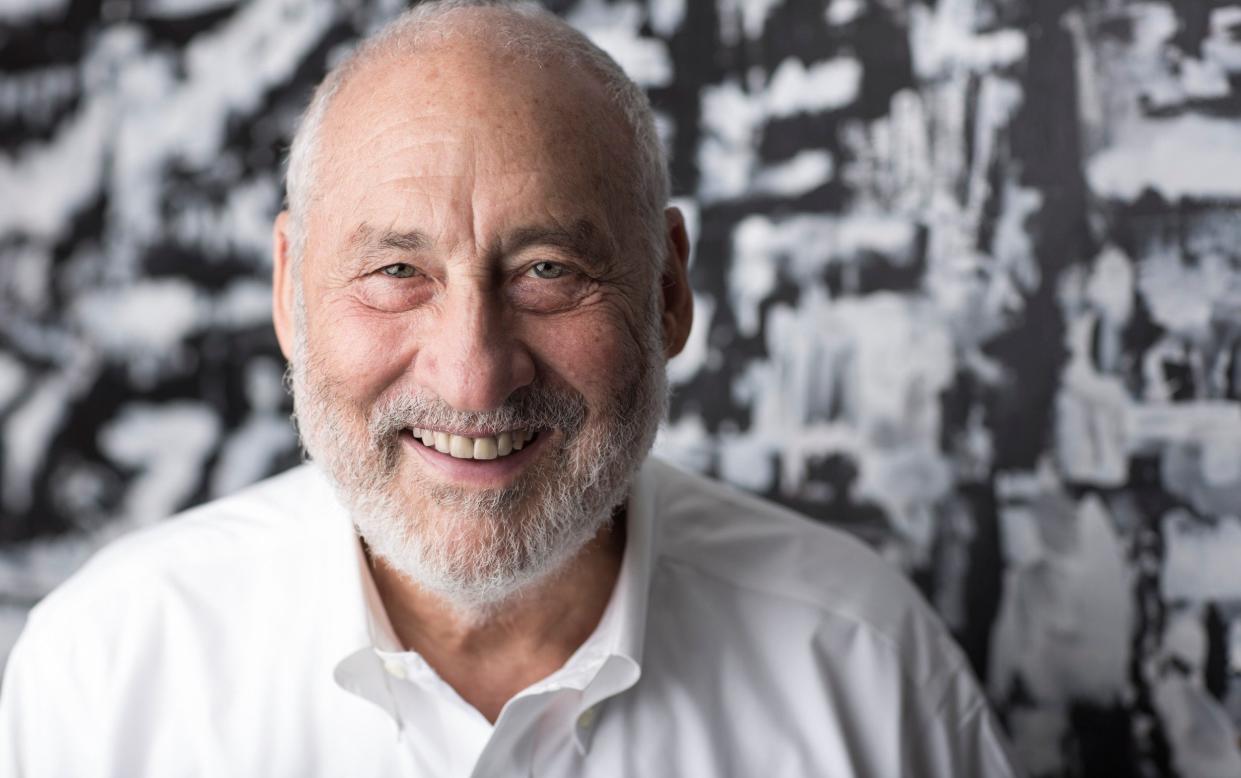Corbyn economics guru urges Starmer to borrow and spend more

A Nobel Prize-winning economist who advised Jeremy Corbyn is urging Sir Keir Starmer to ramp up public borrowing and turbocharge investment.
Joseph Stiglitz, an economic guru of the political left, is calling on Labour to be more radical after “underpromising” in the run-up to the general election.
The former World Bank chief economist told The Telegraph: “I think Labour needs a more aggressive public investment agenda. It is the same problem that we have had in the United States with under-investment in infrastructure.”
It comes after Labour earlier this year dropped its £28bn green investment pledge, blaming high interest rates and the Government’s bid to “max out the credit card”.
Sir Keir’s Opposition instead unveiled revised plans to spend under £5bn a year on environmental projects during its first Parliamentary term if elected, as the polls widely suggest.
This has led to a warning by Mr Stiglitz, who also formerly advised former US presidents Bill Clinton and Barack Obama, that Britain risks “being left behind” if it fails to embrace net zero.
He said: “Biden said he was going to be spending something like $350bn (£277bn) on the green transition. The current estimates are over $1tn. That is the competitive landscape that Britain has to realise it is facing.
“If Britain does not go for the green transition, it is going to make life more expensive and leave the UK behind.”
The former Corbyn advisor also blamed the Government for fuelling the rise in long-term sickness in the UK since Covid, which has sparked a worklessness crisis.
The number of people forced out of work from ill health has soared by 600,000 to a record 2.8 million since 2020, driven largely by a rise in mental health issues.
Mr Stiglitz said: “What the Conservatives have done to the NHS in the last 14 years has really contributed to the problem.
“If you have any kind of health problem and you don’t get treated when it is serious enough, it is very hard to work. Being out of work, ironically, is caused by underinvestment in healthcare.”
People who struggle to access treatment then become anxious about their health and the impact on their income, in what becomes a “vicious cycle”, he said.
Mr Stiglitz added: “Then you have mental health problems and that makes it very difficult to get back into the workplace.”
The Government has sought to stem the rise in benefit payments by tightening the criteria for people who say they are too mentally unwell to work.
Work and Pensions Secretary Mel Stride recently warned that “mental health culture” has gone too far, while Prime Minister Rishi Sunak has spoken of the danger of “over-medicalising” normal worries.
However, Mr Stiglitz said it was “cruel” to “deny the reality” of issues like depression and anxiety.
Mr Stiglitz, who won the Nobel Prize for Economics in 2001, also criticised neoliberalism, which is typically used to describe policies that deregulate markets, lower trade barriers and shrink the size of the state.
He said: “Markets are very good at creating crises and problems, but often they can’t solve the problems they’ve created.
“The way our market system has functioned has put a lot of stress on a lot of people and is a source of problems that undermines productivity.
“If you have an economic system where the rungs of the ladder are far apart, if you’re anywhere other than the very bottom, you worry more about falling down that ladder. That actually impairs your ability to move up the ladder.”
People on the brink of poverty focus so much on survival that it impedes innovation and risk-taking, he said.
Mr Stiglitz also called for billionaires like Elon Musk to be taxed more, saying that the Tesla tycoon was a “not self-made” man.
He said: “Tesla received half a billion dollars from the US government at a critical moment. Elon Musk forgot about that and thinks he is a self-made man. He would not be where he is without that money. He now works very hard to forget that.”


